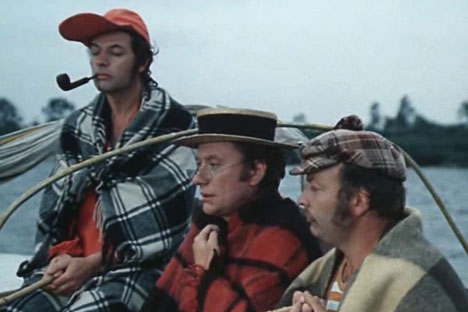
Anglophilia remained a good tradition among educated Russians through the centuries. Even in the Soviet Union, social and political differences between the two countries were put aside for the sake of the image of “good old England” that was so dear to Russians’ hearts.
When Soviet filmmakers depicted the “horrors of capitalism”, with poverty, crime and family breakdown, the story would be set in the United States or some other “capitalist den”, but never in the United Kingdom. In Soviet cinema, Great Britain remained the land of polite and witty detectives solving mysteries with their intrinsic sense of
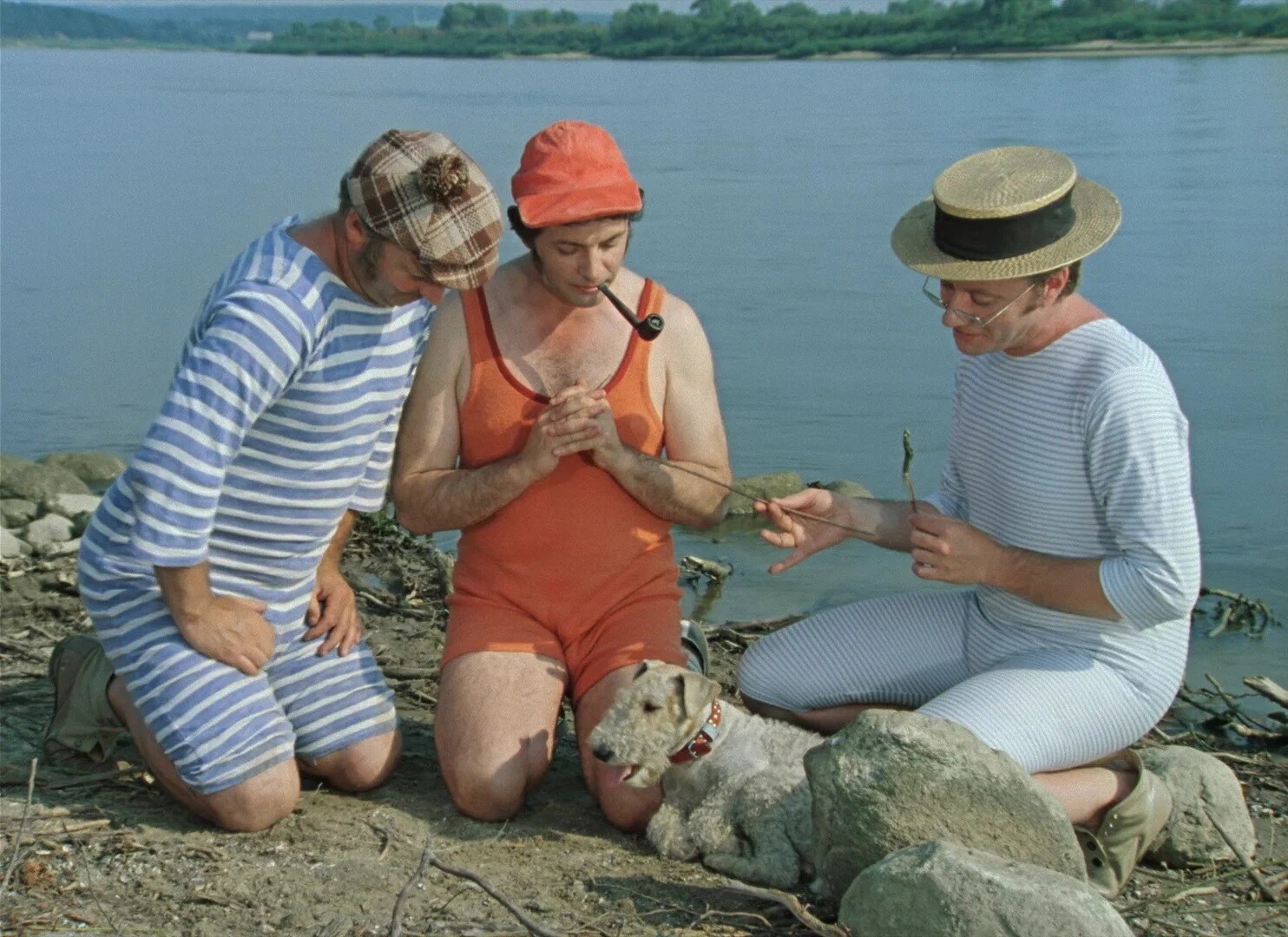
“Three Men in a Boat” by Jerome K. Jerome was so popular in the USSR that it was included in official school curricula for 13-year-olds. The film was a light-hearted musical comedy starring the Seventies’ sex-symbol of the USSR, actor
Russians gleaned from this film a somewhat caricatured image of Victorian gentlemen: a bit awkward, kind-hearted and romantic, wearing striped swimsuits and funny hats. The role of the river Thames, where most of the action takes place, was “played” by the Neman, near the city of Sovetsk in the Kaliningrad region.
However, the story starts in London and Soviet filmmakers found an amusing way to get around the fact that they couldn’t film there for political reasons. The streets were drawn in graphite pencil and several dozen vintage toy cars were filmed moving in stop-motion to recreate the London traffic of 1889. “Three men in a Boat” is hardly historically accurate for the late Victorian era, but its light and slightly melancholic feel is true to the spirit of the original.
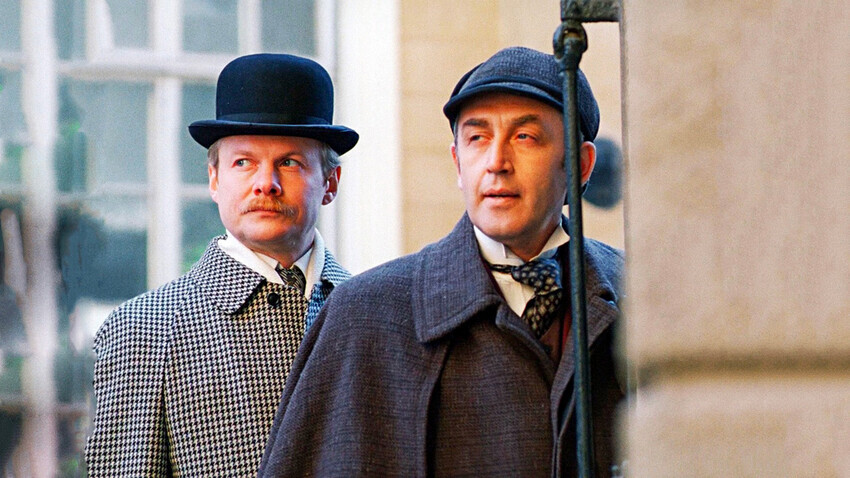
This TV film series made by director Igor Maslennikov was by far the most successful attempt to capture the British spirit through the Soviet camera. Don’t pay attention to the fact that most of the misty London street scenes in the series were actually filmed in Riga, Latvia. Holmes, as played by Vassily Livanov, was unique and at the same time very true to Conan Doyle’s original, because Livanov managed to add some wit to Holmes’ mostly unemotional and rational character.
The Doctor Watson played by Vitaly
This classic Soviet film series was so successful that the British themselves acknowledged it to a great extent: in 2006, Livanov was made an Honorary MBE for his performance as Holmes.
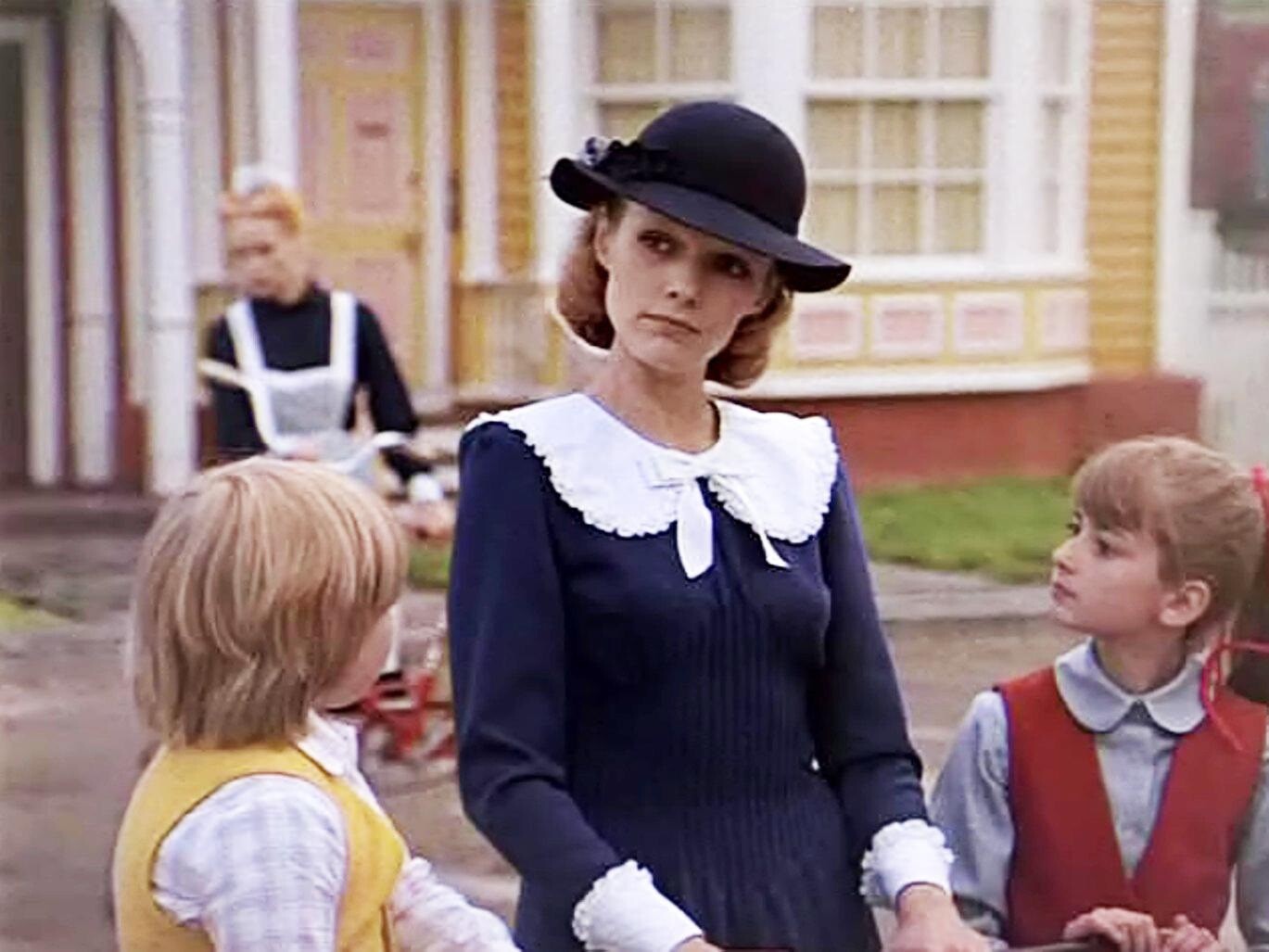
This well-known and loved children’s musical film was more “inspired by” than “based on” P. L. Traverse’s famous novels. Unlike the novels, it is set in the contemporary England of the 1980s.
Mary Poppins is played by Nataliya Andreichenko who, also quite unlike the original Mary, is astonishingly beautiful. This film is an odd mixture of “good old England” as perceived by Russian filmmakers (a perfect home with English-style furniture and a maid, in which everyone is very polite and neatly clothed) and contemporary Western culture (jeans, state-of-the-art tape recorders with Western rock music and so on). The brilliant songs from the film, especially the humorous “33 Cows” and “The Wind of Change” quickly became classics in the USSR.
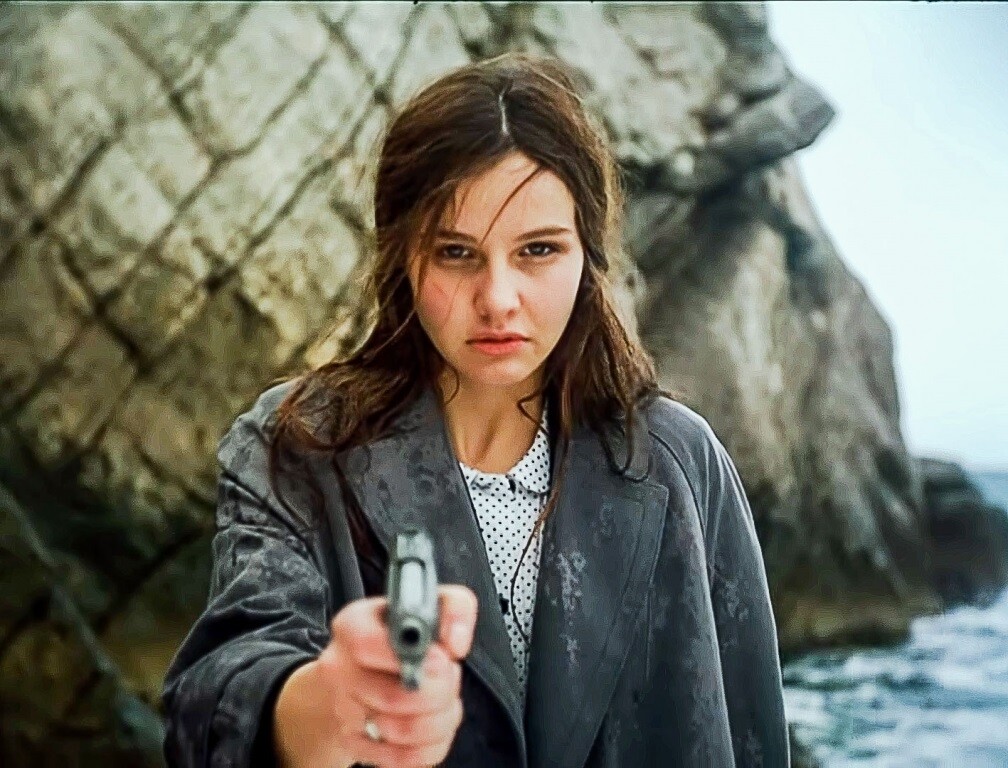
Of all the films based on this thrilling story, only Stanislav Govorukhin’s version adhered to the original text with its dark tone and ending. The island filming took place in Crimea and the castle of Mr. Owen was really a set design so well-made that it quickly became a tourist attraction. “Ten Little Negroes” explored the darker side of the fictional English character, with the crafty plans and intrigues masterfully described by Agatha Christie. This film is widely acknowledged as one of the best Soviet motion pictures in the detective-thriller genre.
Of course, there is more of the UK in Soviet film-making. For example, Agatha Christie who was no less popular in the USSR than in any “capitalist” country and at least two more of her novels were adapted for the screen. “A Pocket Full of Rye” was turned into a 1983 film “The Mystery of the Black Ousels”. Just like “Goodbye Mary Poppins”, the action of this Miss Marple story was for some reason “moved in time” to the 1980s.
In 1989, Hercule Poirot himself (played by Anatoly Ravikovich) made an appearance on Soviet screens in “The Mystery of the End House”.
A classic novel by Cyril Hare, “An English Murder”, was also filmed and starred one of the most loved Soviet actors Aleksey Batalov (famous for the Oscar-winning “Moscow Does Not Believe in Tears”) as Doctor Botvinnik. There was also a much more dramatic and psychological take on a classic British detective, a 1972 film “A Dangerous Corner”, which was adapted from J.B. Priestley’s play.
All rights reserved by Rossiyskaya Gazeta.
Subscribe
to our newsletter!
Get the week's best stories straight to your inbox